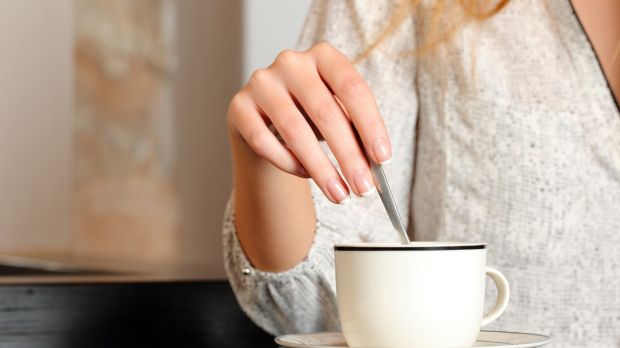Something futuristic is brewing in a shopping complex.
The first robotic barista in the US named "Gordon," started serving up to 120 coffee drinks an hour today-- ironically, just several thousand fee away from a Starbucks in the same complex.

"A lot of us spend a lot of time in line waiting for coffee," says Henry Hu, CEO of Cafe X Technologies, the local start-up that created the robot. "And we decided to do something about it."
For about a year, the firm built a toll booth-sized Cafe X with a sleek industrial design. The automated cafe offers seven drinks like espresso and cafe latte for $2.25 to $2.95 per 8 oz. cup. An app allows for mobile orders. (A quick sample of drinks, each flavoured with hazelnut, caramel or vanilla, can attest to quality. The robotic arm moved a cup between several stations -- from beans freshly ground to the pouring of coffee).
Three nearby order stands offer basic options -- drink, flavour and intensity of flavour. After customers enter a mobile number to get a four-digit code and pay, they are texted when the drink is ready. The process typically takes a few minutes. The robot has been programmed to toss a drink and make another, if necessary.
The Cafe X is part of a growing fleet of robots designed to serve the public in service industries such as food delivery, retail, call centres and education. Robotics' rapid leap out of the R&D; lab and into our homes and stores has come at an awkward time for the industry, coinciding with an election won partially on President Trump's calls to force a renaissance in US manufacturing jobs.
Many economists and technologists see advances in automation as more damaging to US factory jobs than trade pacts, and some have warned about the steep losses to jobs from robotics.
But there's still a lot of hope, at least among technologists, that the coming wave of robots will bring about more jobs.
"We're an inflection point where technology will get smarter and smarter, and adapt to people -- for years, it was just the opposite," says Paul Daugherty, chief technology & innovation officer at Accenture.
He points to examples where advances in robotics, artificial intelligence and virtual reality are starting to grow more visible in people's everyday lives. DoorDash just announced a partnership to test robot delivery in Redwood City, Calif. Hanson Robotics, meanwhile, has developed a miniature humanoid robot named Professor Einstein that teaches children science and math.
The vending booth is Cafe X's second in operation. A model named "Malcolm" is in Hong Kong. A third, "Francisco," is not in use but headed to an unnamed tech company in Silicon Valley. Cafe X plans to own and operate an undisclosed number of machines at heavy foot-traffic locations such as shopping malls, airports and metro stations in the U.S.
To ensure taste quality, Cafe X is partnering with three popular local roasters: Peet's Coffee & Tea, AKA Coffee and Verve Coffee Roasters. Coffee beans are manually replaced daily.
"We think we've created a specialty cafe experience that moves cups quickly," says Hu, who oversees a 12-person company that has landed $5 million in funding from the likes of Khosla Ventures, the Thiel Foundation and Silicon Valley Bank.
While that may some retail workers nervous, most baristas are safe for now.
Starbucks, with more than 25,000 stores, has no plans for robotics baristas. It stresses a person-to-person connection between its service partners (reps) and customers, according to company policy.